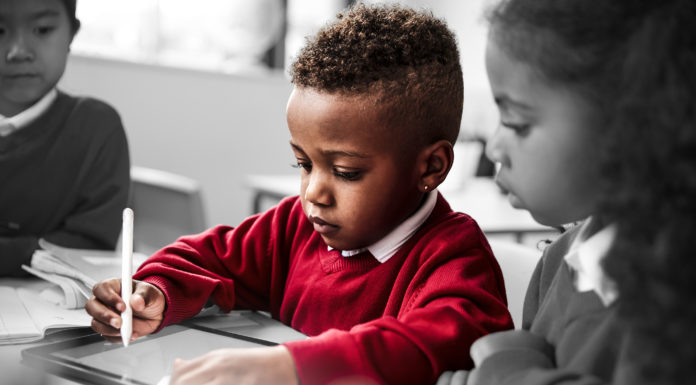Being a single mother, educator, and advocate, I spend countless hours and energy pouring into others. My position and purpose are aligned. I fight for equity and increased opportunities for Black and brown students through high-quality education. That fight doesn’t begin and end with me entering school at 8:00 a.m. and leaving the building at 5:00 p.m. It continues through my own life with my daughter and those in my community.
I began to see my daughter’s anxiety about life increase. I saw her debilitating, constant worry over not being able to finish the mounting numbers of assignments each week.
During the course of a pandemic and the refusal of some schools and academic institutions to venture beyond “business as usual,” I began to see my daughter’s anxiety about life increase. I saw her debilitating, constant worry over not being able to finish the mounting numbers of assignments each week. This led her to experience increased feelings of inadequacy in other areas of her life, too. Her light and her excitement for school were decreasing at a critical time: her eighth-grade year and her transition to high school.
As an educator, I did what needed to be done with her school—not just for her but for other students as well.
As a mother, I knew I could pray, but I also knew that wasn’t enough.
Because I come from a long line of Baptist preachers, when situations arise, my family’s response is to turn to the church as the first and only line of defense. I can’t count the number of times I have discussed a problem with my preacher and educator relatives and been told: “Pray about it.”
If COVID-19 and the pandemic taught us anything, it would be that we must begin to think outside of the box about everything
As an adult, I have seen there is a myriad of external factors that can contribute to needing more than just prayer. If COVID-19 and the pandemic taught us anything, it would be that we must begin to think outside of the box about everything—from school, education, corporate America, even to how we go about our daily lives.
But how do we do that and stay full enough to fight another day?
Therapy.
I’ve heard of the wonders of therapy. Being a Black woman and living with the many other hyphens of my complex identity, I knew that I would find myself placing therapy within my monthly budget for self-care.
I didn’t realize that it would be even more essential for my daughter. But it was, and I started my search to find her a therapist.
In these last few months, I learned two things:
- My daughter needed more than just my village in the fight to be her best self.
- I needed my own set of tools to help her.
I challenge us all to fight for ourselves and our families in ways we may not have been taught to.
I challenge us all to fight for ourselves and our families in ways we may not have been taught to.
Many times, within the Black community, we are faced with constant traumas and an unceasing fight for survival. We fight various systems of oppression daily. And, regardless of what industry we are in, we all know well the injustices that take place in education.
In the classroom, we have strategies and tools for transformation, workshops and classes that teach cultural competency and restorative practices, even books and a new phrase: “trauma-informed.” But we educators don’t always look at how all these external systems can indirectly impact a child through the relentless “drive” of teachers. The effects can be so much that students need more than just prayer and grit to make it through each day.
If you find yourself at a crossroads like I did, inundated with the pressures of school and life and needing to help yourself and your family navigate the unknown spaces that this pandemic has unearthed, I hope that therapy or counseling services are an option.
Use resources within your school, like a school counselor, or reach out to your medical service providers for recommendations for therapists that meet your needs.
If those resources are not available, start where you are and with what you have. Research self-help books, journals and even individuals who speak to your spirit.
Carve out at least one hour of your day to focus on yourself—your thoughts, feelings and other things that fill you up.
And lastly, don’t be ashamed to include therapy in your life—even if you have a foundation of faith. Faith and therapy, combined, have exponentially changed both mine and my daughter’s lives.
For what are we, if we aren’t examples of both fortitude and rest?










